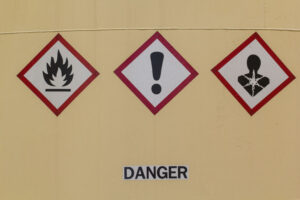
Self-storage is a convenient and practical solution when you’re trying to declutter, move, or free up space in your home. But before you start packing up everything in sight, it’s important to understand that not everything is suitable—or even allowed—in a storage unit. Some items pose safety risks, while others can damage your belongings or violate storage policies.
Here’s a quick guide to what should never go into your storage unit.
Perishable Food and Live Plants
Food and storage units don’t mix. Even canned or boxed goods can attract pests, create foul odors, and lead to mold growth. Anything perishable—like fruits, vegetables, dairy, or meat—is a definite no. Live plants also don’t belong in storage since they need light, air, and water to survive. Without those essentials, they’ll quickly wither and rot, creating a mess and inviting bugs.
Wet or Damp Items
Moisture is one of the biggest threats inside a storage unit. Items that are even slightly damp—like towels, clothing, or outdoor equipment—can cause mold and mildew to spread, damaging everything around them. Always make sure anything going into your unit is thoroughly dry. If you’re storing after a storm or flood, take time to clean and air-dry your belongings first.
Hazardous or Flammable Materials
It may seem obvious, but you’d be surprised how often people try to store things like gasoline, propane, paint, fireworks, or cleaning solvents. These materials are fire hazards and are prohibited in almost every storage facility. Even if sealed, they can leak fumes or ignite under the wrong conditions, posing a danger to your unit and the entire property.
Weapons and Ammunition
While laws may vary by location, most storage facilities prohibit firearms, ammunition, and explosives. These items are considered high-risk due to the potential for theft or accidental discharge. If you need to store a firearm, it’s best to look into a secure, approved gun storage option elsewhere.
High-Value and Irreplaceable Items
Even in a well-secured storage facility, some things are simply too valuable or sentimental to risk. This includes cash, jewelry, family heirlooms, original artwork, vital documents—and yes, even the ashes of loved ones or pets. These items carry deep emotional and personal significance and should be kept somewhere with maximum security and accessibility. Consider storing them in a fireproof safe at home or a bank’s safe deposit box, where they’ll have added protection and peace of mind.
Storing the wrong items in your unit can put your belongings—and others—at risk. By knowing what to avoid, you’ll keep your storage space clean, safe, and in line with facility policies.
If you’re getting ready to rent a unit and want guidance on what you can store, visit Sentry Mini-Storage online to explore our storage options, moving supplies, and helpful tips to make your storage experience as smooth and safe as possible!

Recent Comments